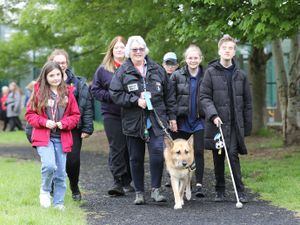Food voucher scheme caused 'avoidable hardship' - lecturer
The distribution of free school meal vouchers was problematic and caused avoidable hardship, according to a report by a city academic.

The report from Wolverhampton University lecturer Dr Gurpinder Lalli, which looked at the free school meal voucher scheme and children’s access to food during the Covid-19 crisis, has been funded and published by the British Educational Research Association.
At the beginning of the first national lockdown, the Department for Education implemented a shopping voucher scheme worth £15 per child per week in England, to provide support for children who would normally receive free school meals.
It came in response to a major campaign by Manchester United footballer Marcus Rashford.
Dr Lalli said: "My report highlights that it caused avoidable hardship to young people and their families and created additional difficulties for schools amid a national crisis.
“The way in which schools responded varied, and it was only possible to capture what schools had done during this period by talking directly to them.
“This demonstrated the need to develop a wider network for school leaders so that schools’ varied activities and approaches can be shared to ensure that schools learn from one another and develop consensus about what constitutes good practice."
Data revealed that there was a lack of training for staff and parents in the operation of the voucher scheme and that school resource not only varied in terms of financial resources and funding models, but also in knowledge, specialist skills and capacity.
Dr Lalli, senior lecturer in education and inclusion studies, identified barriers to the voucher scheme included a lack of understanding of how to access the voucher scheme, a lack of ICT skills, along with stigma attached to the vouchers.
He also identified that the vouchers did not provide a budget sufficient for families to feed their children on.
The research found providing families with cash funds, opposed to vouchers, was seen as a key recommendation by interviewees as it would ensure that families are able to feed their children immediately during such critical times.
The research was funded by BERA's Small Grants Fund (SGF), which was set up in 2020 to support research projects that investigate the impact that Covid-19 had, and continues to have, on important aspects of education and educational research.
The full report can be read at bera.ac.uk/publication/the-free-school-meal-voucher-scheme-childrens-access-to-food-during-the-covid-19-crisis.





